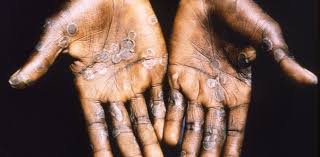Uganda is taking major steps to improve its ability to handle health emergencies by training 78 professionals through the AVoHC-SURGE programme, a flagship initiative by the World Health Organization (WHO).
The programme is part of WHO’s Emergency Preparedness and Response (EPR) strategy, and it is funded by the UK’s Foreign, Commonwealth & Development Office (FCDO).
The training aims to build a strong, ready-to-deploy team of health workers who can respond quickly and effectively when disasters strike whether it’s a disease outbreak, a natural disaster, or another public health crisis.
AVoHC-SURGE (Africa Volunteer Health Corps – Strengthening and Utilizing Response Groups for Emergencies) is designed to train multidisciplinary teams to respond to emergencies across Africa.
The training includes practical simulations and lessons in outbreak investigation, rapid deployment, emergency coordination, risk assessment, and even sensitive areas like gender-based violence and protection from sexual exploitation and abuse.
Uganda’s training brought together experts from different sectors: health, agriculture, the military, fisheries, and internal affairs.
This aligns with the “One Health” concept an approach that recognizes the link between the health of people, animals, and the environment.
Many health threats in Uganda, such as Ebola, cholera, Marburg, and zoonotic diseases, require joint action from these different sectors.
“This training equips Uganda with the human capacity to respond quickly and decisively when emergencies occur,” said Dr. Kasonde Mwinga, WHO Representative to Uganda. “I commend the Ministry of Health for its leadership and commitment to strengthening emergency readiness.”
Participants called the experience “transformative.”
“I gained critical skills in rapid response and coordination that empower me to protect lives and build stronger communities,” said Dr. Andama Adinani, a participant from a district local government.
Another official, Benard Lubwama, Deputy Incident Commander at the Ministry of Health, emphasized the long-term impact:
“Preparedness is an investment in the future. Every skill gained and every relationship built across ministries will help us act faster, smarter, and more effectively to protect Ugandans.”
Uganda joins 27 other African countries that have completed the SURGE training. The trained teams have now been entered into a regional database and are available for deployment across the continent when needed.
This initiative not only improves Uganda’s national emergency preparedness it also sets an example for other countries in the region.
As climate change, pandemics, and conflicts continue to increase health risks across Africa, programmes like AVoHC-SURGE are vital to saving lives and protecting communities.



